2010
Peter Gabriel 'Scratch My Back'
Posted April 23rd, 2010 by kevster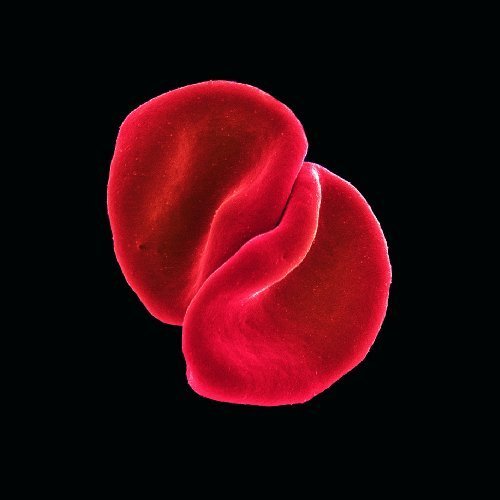
Considering the slow trickle of completed albums he has released since becoming a superstar in 1986 -- just two albums of songs with vocals, paired with two albums of soundtracks and two live records -- deliberate is expected from Peter Gabriel, so the slow, hushed crawl of Scratch My Back is no shock.
Designed as the first half of a two-part project where Gabriel would cover 12 different artists who would then return the favour by recording their own versions of Gabriel’s compositions -- the counterpart album naturally bearing the title I’ll Scratch Yours -- Scratch My Back divides neatly between six songs from his peers (Bowie, Paul Simon, Randy Newman, Neil Young, Lou Reed, David Byrne) and six songs from younger artists (Radiohead, Arcade Fire, Stephin Merritt, Bon Iver, Elbow, Regina Spektor).
Gabriel doesn’t dodge familiar tunes, choosing to sing “Heroes” and “Street Spirit (Fade Out),” but he twists each tune to his own needs, arranging everything with nothing more than piano and strings, a change that’s almost jarring on Simon’s “The Boy in the Bubble,” yet it stays true to the undercurrent of melancholy in the melody.
Immediate it may not be but fascinating it is, and after hearing Gabriel turn all 12 of these songs into something unmistakably his own, the appetite is surely whetted for its companion piece.
Erland and the Carnival 'Erland and the Carnival'
Posted April 22nd, 2010 by kevster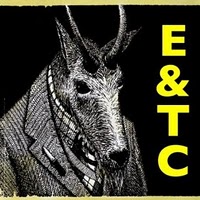
There's not much more British than slightly freaky folk music. As if to prove the point, Erland Cooper (along with Simon Tong (Verve, Blur) and (drummer from The Fireman) David Nock) has mined these pleasant pastures for a debut album of depth and weird beauty.
Together, they've taken various bits of existing poetry, lyrics, folk tales and songs, and melded them together with their own organs, guitars and lyrics. The result is a collection of engaging, swirling tracks and stories that sound like the soundtrack to a creepy, dreamy funfair.
The best example of this is The Derby Ram – an update of the traditional ballad about the giant ram which got the city its emblem.
Elsewhere, William Blake's verse The Echoing Green is set to a hypnotic offbeat guitar part that Cooper hides his voice behind. Leonard Cohen's return-to-libido poem Disturbed This Morning is given a curious reworking that makes it more wanderlust than old-man lust, and My Name Is Carnival (featured here) a cover of a track by tragic 60s folk singer Jackson C Frank (which gives the band their name) is a buxom, jazzy, introduction to the Carnival's shtick.
It's a curiosity alright, one you can file next to similarly interesting backwards-looking modern bands like The Decemberists, The Coral and Mystery Jets.
A freakbeat take on sample culture.
Bonobo 'Black Sands'
Posted April 21st, 2010 by kevster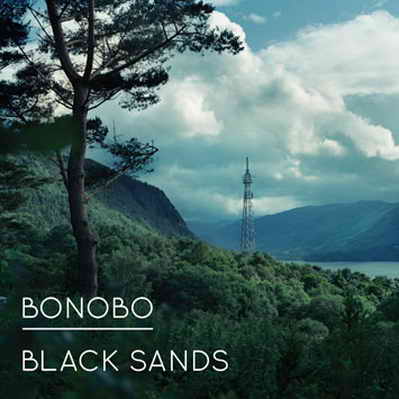
Laid-back London groove maestro Simon Green (alias Bonobo) returns after a considerable absence (on the recording front, at least) with this fourth full-length helping of his masterfully mellow monkey magic.
Green's clearly been keeping his ear to the ground for a bit of rhythmic reinvigoration: the immediately striking "Kiara" reworks the hauntingly elegant string refrain that opens the album with submerged vocal splices and a halting, head-nodding left-field hip-hop beat.
Elsewhere, "We Could Forever" is a funky Afro-Latin workout riding an infectiously crisp guitar riff, and the scruffy, swing-inflected breakbeats that dominated Bonobo's earlier output crop up again on "Kong" (featured here) and "El Toro." But while the grooves here serve quite nicely (and keep things consistently varied), it's the lush layers of unmistakably live instrumentation laid on top -- most of it played by Green himself -- that make the album really soar.
For a style of electronica (chillout/downtempo) that's grown decidedly dusty over the past decade, 'Black Sands' is a welcome infusion of life and warmth.
The Bird and The Bee 'Interpreting The Masters, Vol. 1: A Tribute To Daryl Hall & John Oates'
Posted April 20th, 2010 by kevsterChildren of the ‘80s that they are, singer Inara George and producer Greg Kurstin have chosen Daryl Hall & John Oates for the first volume of Interpreting the Masters, a sly move that reveals both their age and intended audience -- i.e., ex alt-rockers raised on new wave and now settling into a tasteful, hipster middle age, hauling around kids dressed in Ramones t-shirts -- and a reflection of Hall & Oates’ increasing reputation as soul-pop songwriters and record-makers.
The Bird & the Bee manage to make these very familiar hits sound fresh without radically reinventing them. That in itself is a much trickier move than turning these all into slow acoustic dirges, but it’s better still because these arrangements are true to both Hall & Oates and George & Kurstin.
The heart of the album lies in these covers of ‘80s staples: they shift the spotlight just enough to prove how good both the original song and singles are, and by never drawing attention to their own performance and arrangements, the Bird & the Bee prove just how good they are too.
David Byrne & Fatboy Slim 'Here Lies Love'
Posted April 1st, 2010 by kevster
Looking for an album devoted to Imelda Marcos, the former first lady of the Philippines ?? You've come to the right place.
With a lineup of guests including Florence & the Machine's Florence Welch, Tori Amos, Steve Earle and Santigold, the 22-track tribute features a diverse mix of thoughtful ballads and disco-influenced dance numbers.
“Here Lies Love” begins with an opening disco number with Imelda at a disco in the late 1970s, where she spent time with all the “beautiful people—Christina Ford, George Hamilton and Henry Kissinger. “Here Lies Love” is what she was quoted as wanting inscribed on her tombstone.
The disco opera ends with Imelda and her maid contemplating the sacrifices they have made. As the Marcoses are airlifted out of the country during the People Power Revolution, Imelda says she doesn’t understand why the people don’t love her anymore, and she looks forward to her vindication and a triumphant return.
Cyndi Lauper's giddy vocals on "Eleven Days" and Róisín Murphy's horn-driven "Dont' You Agree?" offer the most lasting thrills on the album.
And winning duets include Candie Payne and St. Vincent on the breezy "Every Drop of Rain" and Byrne's emotional collaboration with My Brightest Diamond's Shara Worden on "Seven Years."
At times, "Here Lies Love" wobbles as a concept album, and listeners unfamiliar with Marcos' story may not initially understand the lyrical conceits. But it contains enough solid material to justify repeated listens.
Johnny Cash 'American VI: Ain't No Grave'
Posted April 1st, 2010 by kevster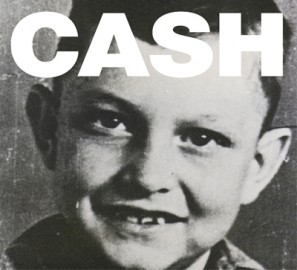
Released for the occasion of Johnny Cash's 78th birthday, American VI: Ain't No Grave is the final installment in the collaboration between Cash and Rick Rubin that began with 1994’s American Recordings.
These ten songs were cut during the same sessions for American V: A Hundred Highways. June Carter Cash (Johnny's wife) died during routine surgery during these sessions. Cash, though grief stricken and with full knowledge that he too was dying due to complications from Parkinson’s disease, worked as often as his health would allow. He died three months after these songs were recorded.
Ain't No Grave is an elegiac and deeply spiritual album, a formal goodbye without regret from a man and an artist of almost mythic stature. The album’s final cut is Queen Liliuokalani's traditional Hawaiian ballad “Aloha Oe,” one of the sweetest, most affectionate leaving songs ever written. And Cash’s version? It’s devastatingly beautiful; to the point of tears.
The featured track is a country-gospel-blues by Brother Claude Ely -- it’s a fierce showdown with the Reaper, with the singer winning it hands down.
If there were any justice, Ain't No Grave would be the last album released under Cash’s name.
Goldfrapp 'Head First'
Posted March 22nd, 2010 by kevster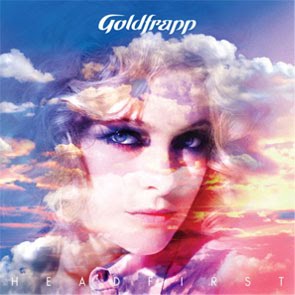
Regular visitors to this site will understand how much we LOVE Goldfrapp. This latest album does nothing to change that opinion.
Alison & Will take us back to the 80s with a heady blend of hi-NRG basslines, fat synth sounds and feathery vocals. It's easy to see the influences here: Giorgio Moroder, ABBA, ELO, even the Van Halen synths are all present and correct.
The featured cut, 'Believer', sounds instantly familiar, but not tired or obvious.
If the album seems somewhat slight, it’s purposefully so: Head First is a love letter to the frothy, fleeting, but very vital joys of pop music.
 Under The Influence
Under The Influence